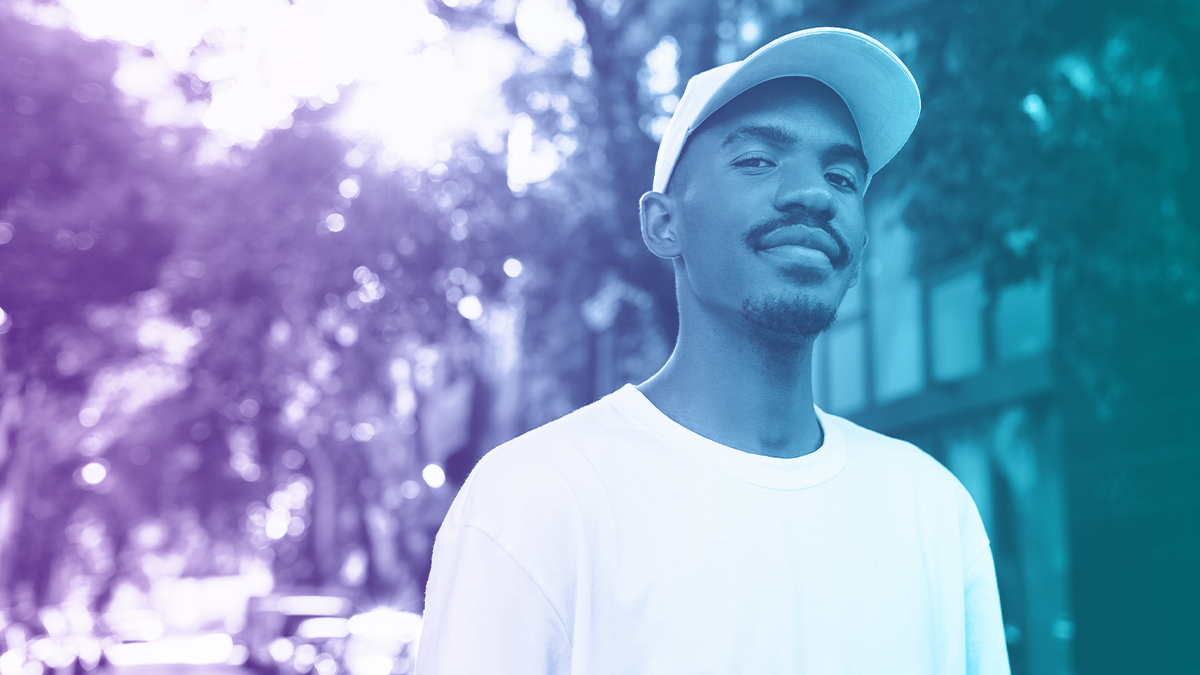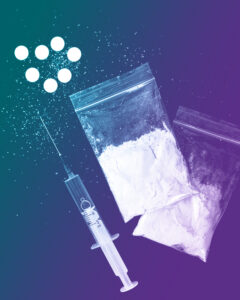Signs of Heroin Addiction
In today’s day and age, almost all of us know someone affected by the opioid crisis. Whether a coworker, neighbor, or even ourselves, opioid addiction has taken someone from us in one way or another. Just ask Laura Sehres of Tampa, whose son lost his life to a heroin overdose.
“He would say how this would not happen to him, right? He was too smart for this to happen to him, and an overdose was only something that happened to other people,” Sehres said. “This can and does happen to everyone — every walk of life, every age, every gender. When they say drugs and overdose deaths don’t discriminate, they’re right.”

At Clean Recovery Centers, we hear this all too often. People become confident in their heroin use and think there is no way that an overdose can happen to them. With substances like fentanyl circulating within heroin markets, no one is safe from a possible overdose. In 2021, 452 people lost their lives from an opioid overdose in Hillsborough County. Our goal is to educate the public and provide resources to help make a difference in the opioid crisis. Today, we are talking about the signs of heroin addiction to prevent even just one more accidental overdose.
Physical Symptoms of Heroin Addiction
What is heroin? Made from morphine which is derived from the poppy plant, heroin is an illicit substance that can be injected, smoked, or snorted. When heroin is used, an initial “rush” of euphoria and relaxation are felt. This is because heroin binds to the opioid receptors in the brain that control feelings of pain and pleasure.
Over time, heroin can cause harm within the body. Physical symptoms of heroin use include:
- Drowsiness
- Dry mouth
- Flushing of the skin
- Itchiness
- Obscured thinking
- Heaviness in the arms and legs
- Sexual dysfunction
- Digestive problems such as constipation
- Collapsed and scarred veins in those who inject it
These symptoms can appear at any time, and stopping heroin use will not make them go away immediately. It can take weeks or months before the body returns to a normal state.
Withdrawal Signs of Heroin Addiction
Developing a dependence on heroin happens the longer it is used. The brain gets accustomed to having heroin in the system and adjusts to accommodate. When the brain doesn’t have heroin, it sends signals to the body to alert a need for it. This is where withdrawal comes in. Common signs of heroin withdrawal include:
- Mood swings
- Sweating
- Muscle aches
- Insomnia
- Vomiting
- Diarrhea
- Uncontrollable leg movements
Withdrawal symptoms are not pleasant, and can become life-threatening. Withdrawal is the biggest cause of relapse for heroin use. Even when the person using it wants to stop, the body keeps sending signals to keep using heroin.
Psychological Signs of Heroin Addiction
The psychological signs of heroin addiction typically happen gradually. Some signs include:
- Increased anxiety and depression
- Withdrawing from friends and family
- Losing interest in hobbies
- Poor school or work performance
- Changing friend groups
Risk Factors of Heroin Addiction
Most people who have a substance use disorder report having started using in their youth. 15% of high school students report using illicit substances such as heroin. Risk factors for heroin addiction in youth include:
- Family history of substance use
- Childhood abuse such as physical or sexual
- Undiagnosed mental health condition
- Poor parental monitoring
- Lack of involvement in school
- Associating with people who use substances
Most of these factors apply to adulthood as well. Some don’t begin using substances like heroin until later in life. This use can stem from childhood trauma and undiagnosed mental health conditions.
The Dangers of Heroin
Heroin can pose many dangers to those that use it. Injecting heroin can lead to hepatitis or HIV/AIDS from sharing needles. Overdose is common and can happen to anyone, no matter how long they have been using it. Heroin is a depressant, meaning it slows the central nervous system. Breathing can slow so much that it stops altogether. This leads to coma which can cause brain damage or can even be fatal.
Recognizing Heroin Use in Teenagers
 Teenagers are in the stage of life where figuring things out usually comes from experience. Curiosity and peer pressure are the number one reasons teens try substance use. But in teens that have the risk factors for addiction, heroin may become more than a one-time deal. Teens using heroin will adapt their life to focus on their use. Signs include changing friend groups, poor school performance, withdrawing from family, and mood swings. Physical signs usually include changing sleeping and eating habits as well as clouded thoughts and judgment.
Teenagers are in the stage of life where figuring things out usually comes from experience. Curiosity and peer pressure are the number one reasons teens try substance use. But in teens that have the risk factors for addiction, heroin may become more than a one-time deal. Teens using heroin will adapt their life to focus on their use. Signs include changing friend groups, poor school performance, withdrawing from family, and mood swings. Physical signs usually include changing sleeping and eating habits as well as clouded thoughts and judgment.
First Lady Casey DeSantis has been advocating for education about illicit substances in schools since 2019. “The Facts. Your Future.” is a campaign that gives resources to schools throughout Florida to plan educational assemblies for students. This program also offers parents resources online such as materials for talking to teens about substance use backed by facts. Communication and knowledge are the best ways to keep teens engaged and informed.
Heroin and Drug Paraphernalia
Heroin paraphernalia can include many different objects. Needles and syringes are key signs of heroin use. Other paraphernalia can include glass or metal pipes, aluminum foil, spoons, lighters, and string or rubber straps. While individually these items don’t necessarily point to heroin use, when found together they can be a tell-tale sign.
Currently, in Florida, fentanyl test strips are considered paraphernalia. While laws are working to change this, for now, they remain illegal. In the future, seeing fentanyl test strips readily available can help tremendously with accidental overdoses. The Centers For Disease Control has been working to increase access to fentanyl test strips as a means of harm reduction. When people know their substance contains fentanyl, the hope is that they use less or don’t use it at all.
What Should I Do If Someone I Know Needs Help?
If someone you love is managing a heroin use disorder, getting them into treatment could help get their life back on track. Clean Recovery Centers has a three-phase program for treatment for heroin addiction, Our staff of professionals treats heroin withdrawal through our safe and trusted detox, followed by inpatient or outpatient programs to continue to build on the path to recovery.
Heroin Detoxification
The first phase of treatment is called preparation. This includes a 24-hour detoxification period monitored around the clock medically and with emotional support. Detox from heroin can be dangerous because withdrawal symptoms can become fatal. We offer medication-assisted treatment during this time to ensure the safety and well-being of the individual..
Residential / Inpatient Rehab Services
There are two stages to our residential treatment program.
Residential One – This is part of phase one of the treatment program. Individuals are in a 24-hour, 7-days-a-week, live-in environment. Medical support is available if needed, but the main focus is on individual, group, and family therapy. The length of stay in this treatment phase is 3-4 weeks.
Residential Two – This is where the transition to phase two happens. Phase two is the action phase, where individuals confront where the addiction started and prepare themselves for independent recovery. At Clean Recovery Centers, this step is referred to as Day/Night Treatment, or DNT. While most clients choose to live in community housing on-site for this phase, it is not required. The program is a minimum of 30 hours of services per week. The four main focuses of DNT include experiential processes, defense mechanism identification, belief system exploration, and symbolic integration. All of these components are to help transition core beliefs and develop balance to a clean life. This phase of treatment typically lasts 2-3 weeks.
Mental Health Path – For those who have been diagnosed with a mental health condition during phase one, the treatment path can change to accommodate those needs first. Clients go into a residential II setting after detox and receive specific treatment for their diagnosis as well as education and medication management.
Outpatient Rehab Services
Phase Three of the treatment process is the maintenance stage. At Clean Recovery Centers, we have two versions of outpatient services, intensive outpatient and outpatient. For intensive outpatient, or IOP, the client can choose to reside in a 24/7 monitored transitional living on-site or at home. The program is 9 hours per week minimum and continues with individual counseling. Outpatient is for those living at home or in sober living off-site and is 2 hours per week. Both services build on the skills learned in inpatient treatment and therapies to continue on the path to living heroin free. The length of stay for phase three is around 6-8 weeks.
Heroin use disorder doesn’t start the same for everyone, nor does it have to have the same ending. Choosing recovery can set you up for a life of fulfillment and support. Clean Recovery Centers is ready to start your journey anytime. Call us today at (888) 330-2532 to learn more about our facilities and trusted treatment program.
FAQs About Heroin Addiction
Does heroin affect sleep?
Heroin can affect sleep by causing insomnia and nodding in and out of consciousness.
What effects does heroin have on the body and brain?
Heroin affects the brain by binding to opioid receptors and increasing pleasure feelings. It affects the body by slowing the central nervous system.
How is heroin consumed?
Heroin can be injected, smoked, or snorted.
Sources:
- https://www.flhealthcharts.gov/ChartsDashboards/rdPage.aspx?rdReport=SubstanceUse.Overdose
- https://www.abcactionnews.com/news/state/mother-of-overdose-victim-says-over-the-counter-narcan-may-have-saved-her-son
- https://www.cdc.gov/healthyyouth/substance-use/index.htm
- https://www.fldoe.org/thefactsyourfuture/


